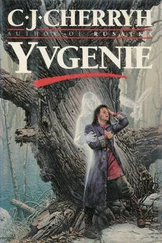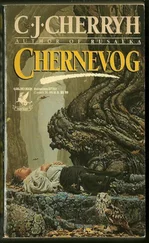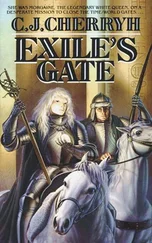C. Cherryh - Kesrith
Здесь есть возможность читать онлайн «C. Cherryh - Kesrith» весь текст электронной книги совершенно бесплатно (целиком полную версию без сокращений). В некоторых случаях можно слушать аудио, скачать через торрент в формате fb2 и присутствует краткое содержание. Жанр: romance_sf, на английском языке. Описание произведения, (предисловие) а так же отзывы посетителей доступны на портале библиотеки ЛибКат.
- Название:Kesrith
- Автор:
- Жанр:
- Год:неизвестен
- ISBN:нет данных
- Рейтинг книги:3 / 5. Голосов: 1
-
Избранное:Добавить в избранное
- Отзывы:
-
Ваша оценка:
- 60
- 1
- 2
- 3
- 4
- 5
Kesrith: краткое содержание, описание и аннотация
Предлагаем к чтению аннотацию, описание, краткое содержание или предисловие (зависит от того, что написал сам автор книги «Kesrith»). Если вы не нашли необходимую информацию о книге — напишите в комментариях, мы постараемся отыскать её.
All Rights Reserved
Cover art by Gino D'Achille
Frontispiece sketch by the Author
For DON WOLLHEIM with most especial appreciation
FIRST DAW PRINTING, AUGUST 1978 123456789
PRINTED IN U. S. A.
Kesrith — читать онлайн бесплатно полную книгу (весь текст) целиком
Ниже представлен текст книги, разбитый по страницам. Система сохранения места последней прочитанной страницы, позволяет с удобством читать онлайн бесплатно книгу «Kesrith», без необходимости каждый раз заново искать на чём Вы остановились. Поставьте закладку, и сможете в любой момент перейти на страницу, на которой закончили чтение.
Интервал:
Закладка:
Eddan shrugged again."We are the Hand; others do the planning. But be sure that you have a use and that the she'pan has planned for it. Remember it. Medai was considered and rejected. Remember that too."
He sat stunned, all his surmises torn down and laid waste at once. "Sir," he said, but Eddan thrust away from him and rose, turning his face from him, making it plain that he wanted no further question on the matter. Niun rose to his feet, seeking some way to ask, let his hand fall helplessly: when Eddan would not answer, he would not answer, and quite probably it was all Eddan could say, all that he knew how to say.
The she'pan is well-pleased with his death, Melein had said; the coldness of that still chilled him. And: Medai was considered and rejected, Eddan had told him.
For the first time he pitied his cousin, saw everything turned inside out.
Himself, in his youthful jealousy—Medai, whose crime had been only that he had looked on Melein, and that the she'pan had planned otherwise. Kesrith was a hard and unforgiving world. The Mother of Kesrith was like her world, without mercies.
His own stubbornness had run counter to her will. He had defied her, knowing nothing of her reasons. He had done a thing which kel'ein did not do and tested her resolve to stop him, at a time when the People could least afford division.
It was possible, he thought, that not alone the regul had killed Medai—that the she'pan and even Melein had had their part in it.
He pitied Medai, fearing for himself. He would have wished to have spoken with his cousin, both of them men now, and not one only—to have learned of Medai the things Eddan could not tell him. He looked at the black-shrouded form on the litter as he took up the ropes again, and found that all his confidence had left him.
He need not have been alone these years, he thought suddenly, and Medai need not have died, and so many things need not have happened, if he had not made the she'pan choose between them.
It was not alone the regul that had killed Medai
It was evening when they reached the holy place, the cliffs, the windy recesses where the caves of Sil'athen hid the dead of the People that had died away from sun-burial. There were many, many graves, the oldest dating from before Kesrith had known regul, the last those that had been born on Nisren, and had fled here for refuge.
The valley was a long retreat where the cliffs marked a new level of the uplands. Here the sands were red, beginning with the cliffs, in contrast to the pale lowlands, and the red rock was banded at tunes with white. Where rock formed a hard cap, erosion by wind and the burning rains bad made strange pillars and hulking shapes that guarded the way through Sil'athen, and cast strange shadows in the setting light of ruddy Arain. A windflower had occupied one of the crags; its tendrils glistened like threads of glass, red-stained, in the sunset. On the left of the entry a burrower had laired for many years: they swung wide, avoiding this guardian.
It was shaming to stumble here, at the end: Niun felt the sand shift underfoot and caught himself, fearing at first a smaller burrower, undetected; but it was an old hole, only soft sand. He gathered himself up, dusting the knee on which he had fallen, and leaned against the ropes, shaking off the several offered hands. There was a black shadow over his vision, tinged with red; the membrane half closed, no longer responsive to conscious will. The air he breathed was salt with his own evaporating moisture.
They passed the old graves, the thousands of the old Kath, from days before the regul. Then there were the lonely twelve of their own Kath, buried westward according to tradition, facing the rising sun, dawning hope: they were the child-bearers, and with them were buried the few sad children, those too gentle for Kesrith's harsh winds, lives that should have preserved the People, had Intel not chosen Kesrith for homeworld. Many worlds the regul had offered, fair, green worlds; but Intel had desired Kesrith. She had told them this. The forge of a new people, she had said of Kesrith. But the gentle Kath had died in that forging, leaving them desolate.
Facing the sun's setting were the Sen in their thousands, and the nineteen recent graves of their own Sen. These also, in their way, gentle and vulnerable, had failed in Intel's refining, leaving Melein and Sathell alone to serve.
In the highest cliffs were the graves of she'panei and the kel'ein who guarded them in death. It was not certain how many she'panei had been on Kesrith. Niun knew of fifty-nine. He also knew that no kel'en knew a whole truth. He thought on this through the red and black haze of other thoughts, as they turned toward the graves of the Kel.
There were only a few hundred, to the others' thousands, almost as few as the graves of the she'panei—on Kesrith. Their dead would many times outnumber the Sen; but very, very few found their graves in earth.
They stopped at the newest cave, where the veterans of Nisren were entombed; and Niun forced himself to stay on his feet, to help them in unsealing it, moving rock until his hands were numb, for these stubborn old men would do everything if he did not forestall them. He ached and his own blood was on the rocks with which he made place for Medai.
Kel'ein were not buried like others: other castes faced into the valley of Sil'athen; but the Kel faced outward, toward the north, the traditional direction of evil. Row on row the other dead lay in the dark. When they lit their single lamp they could see them, musty black shadows in veils and robes moldering into ruin, veiled faces turned toward the north wall of the cave.
The air inside was cold and strange with decay. The dark oppressed. Niun stood, content for a moment only to stand, and let the old men set Medai in place among the others. They stopped then and faced north, and spoke over him the Shon'jir, the Passing ritual. Niun repeated the words—spoken at birthings and burials, heralding a life of the People into the world and out of it.
From Dark beginning
To Dark at ending,
Between them a Sun,
But after comes Dark,
And in that Dark,
One ending.
The words echoed in the cavern, in darkness wrapped about them; and Niun looked at the dead, and at his companions, and considered the frailty of them that chanted of the Dark; and the fragile breath's difference between lips that moved and those that could not. Terror possessed him, rebellion, to rush out into the open; but he did not give way. His lips continued to form the words.
From Dark to Dark
Is one voyage.
From Dark to Dark
Is our voyage.
And after the Dark,
O brothers, o sisters,
Come we home.
He had never thought the words. He had mouthed them; he had never felt them. He felt them now, looking about him.
Home.
This.
He held himself still while the others filed out, forced himself to be the last, mastering his fear; but even when he had the light of stars and Kesrith's first moon overhead, he felt that cold inside him, that many suns would never warm away.
"Seal it," said Eddan.
He gathered up the rocks one by one, and fitted them into place, making tight their joinings, sealing them between himself and Medai. His breath came hard. He found himself with tears flooding his cheeks, for his shame before Medai.
Not like you, cousin, not like you, he kept thinking, as he set each stone in place, a determination, a wall that he built, a protection for the hallowed dead against the winds and the sands and the prying fingers of the suruin that ranged the high hills: a protection for himself, against the truth inside.
And they were done, all debts paid. The brothers blew dust upon the wind; he gathered up his handful and did likewise, bidding farewell. Then they rested a time, before beginning the long, hard trek back to the edun.
Читать дальшеИнтервал:
Закладка:
Похожие книги на «Kesrith»
Представляем Вашему вниманию похожие книги на «Kesrith» списком для выбора. Мы отобрали схожую по названию и смыслу литературу в надежде предоставить читателям больше вариантов отыскать новые, интересные, ещё непрочитанные произведения.
Обсуждение, отзывы о книге «Kesrith» и просто собственные мнения читателей. Оставьте ваши комментарии, напишите, что Вы думаете о произведении, его смысле или главных героях. Укажите что конкретно понравилось, а что нет, и почему Вы так считаете.







